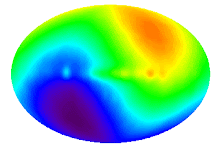Five Things Your Microbiome Can Tell You
1. Obesity. Ley et al (2006) and others have identified gut microbes associated with obesity, such as Eubacterium rectale. In addition, Upadhyay et al (2012) did experiments with mouse models and suggested the possibility that the microbiome could be manipulated for weight control in the near future
2. Dietary composition. Wu et al (2011) found that gut enterotypes were strongly associated with long-term diets, particularly protein and animal fat (Bacteroides) versus carbohydrates (Prevotella).
3. Antibiotics. If you have recently taken antibiotics, your gut microflora may not yet have been replenished. Dethlefsen et al (2008) found that ciprofloxacin treatment influenced the abundance of about a third of the bacterial taxa in the gut. Similarly, Jernberg et al (2007) found that long after the selection pressure from a short antibiotic exposure has been removed, there are persistent long term impacts on the human intestinal microbiota that remain for up to two years post-treatment.
4. Allergies. Is your nasal microbiome associated with the profile of chronic sinusitis? Abreu et al (2012) found that multiple, phylogenetically distinct lactic acid bacteria were depleted concomitant with an increase in the relative abundance of a single species, Corynebacterium tuberculostearicum, in patients suffering from chronic sinusitis.
5. Bacterial vaginosis. If you have a penis, your microbiome may be correlated with bacterial vaginosis in women. Price et al (2010) found that two families found in certain penis microbiomes — Clostridiales Family XI and Prevotellaceae — have been previously associated with bacterial vaginosis. This may correspond to frequent infections in your partner.

沒有留言:
張貼留言